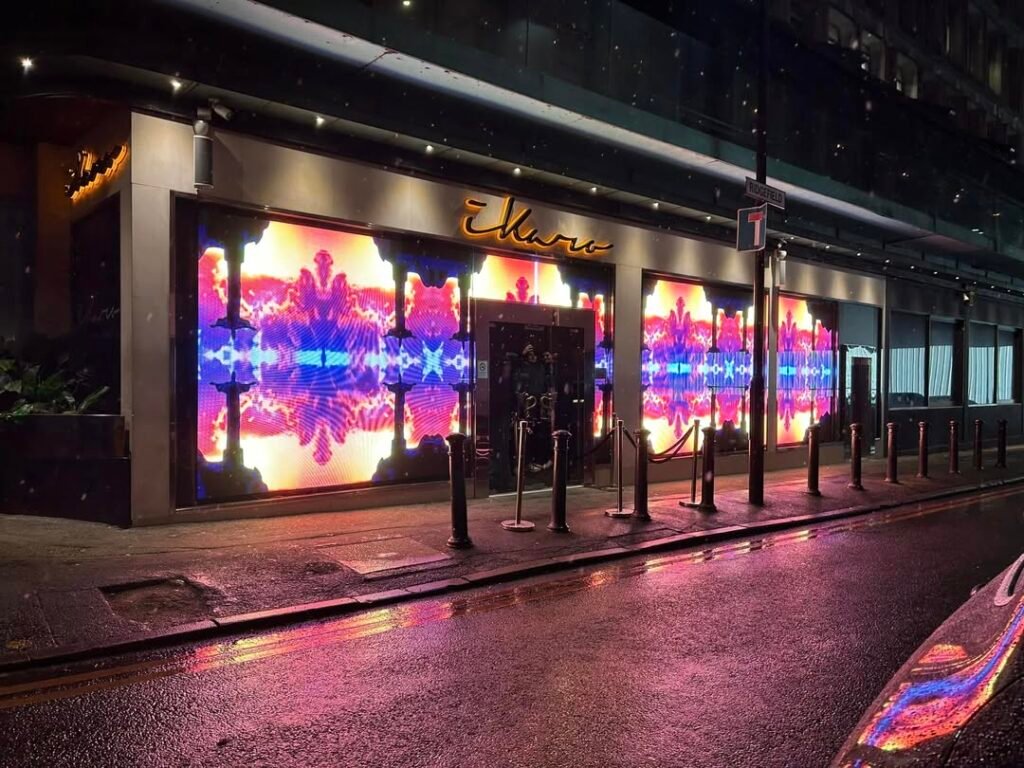Manchester’s vibrant city centre often welcomes exciting new venues that add to its diverse culinary landscape. In late 2023, Ikaro Manchester emerged as one of the most buzzworthy restaurants—combining luxury dining with a modern twist. However, just as quickly as it appeared, the restaurant closed its doors, leaving many to reflect on its impact and legacy. This article explores the story of Ikaro Manchester, its concept, rise to popularity, and sudden closure, offering insights that will resonate with local readers and food enthusiasts alike.
A Grand Entrance: The Ikaro Concept
Ikaro was launched as a high-end steak, sushi, and champagne restaurant and bar in the heart of Manchester. Situated at 14 John Dalton Street, the venue took over the former site of the iconic Panacea nightclub, already well-known among the city’s nightlife veterans. The transformation included lavish décor, with black marble, velvet furnishings, and large screens displaying digital art, creating an ambience that fused modern sophistication with a hint of glamour.
From its inception, Ikaro aimed to elevate Manchester’s dining scene. The menu featured two unique pillars—’fire’ and ‘ice’. Diners could enjoy grilled and flame-cooked meats alongside exquisite sushi and seafood. Specialities included Japanese A5 Wagyu steak, bluefin tuna otoro, hand-dived scallops, and a rotating champagne selection. Prices reflected the restaurant’s ambitions, with steaks priced as high as £250—a fact that did not go unnoticed in local reviews and discussions.
Opening Buzz and Celebrity Ties
When Ikaro opened in September 2023, its arrival was met with considerable hype. The team behind the venue included operators from several established Manchester dining brands, such as SakkuSamba and Habbibi. The former Panacea site added an extra layer of excitement due to its celebrity history, drawing attention from local media outlets and social influencers.
Throughout its first weeks, the restaurant thrived on publicity. Social media celebrated its opulent décor and fine-dining experience, while noted chefs like Exose Grant contributed to the menu, bringing further credibility and intrigue to its launch. Ikaro’s approach was to provide an immersive late-night destination—serving drinks and rare champagnes well into the early morning.
The Menu: Dining ‘Fire and Ice’
Ikaro’s culinary philosophy was bold. It divided its offerings between dishes cooked over fire—such as grilled lobster, Wagyu steaks, and lamb—and those prepared with delicate, ‘ice-inspired’ methods, including fresh sushi, ceviche, and premium sashimi. There was an emphasis on luxury and attention to detail, from caviar-topped sushi rolls to perfectly-seared lamb cutlets.
The 84-seat restaurant aimed to provide not only an exceptional meal but a memorable occasion. Reviews from the period suggest that many diners enjoyed the experience, noting attentive staff, inventive plating, and a buzzing atmosphere during peak hours. However, the high price point and expectations sometimes led to divided opinions, with some customers feeling the experience did not always match the cost.
Rising Criticism and Customer Feedback
Despite notable early success, not all reviews were glowing. TripAdvisor reports indicated a wide range of experiences, from praise for knowledgeable service and outstanding drinks to disappointment over delayed orders, unclear menu value, and inconsistencies in execution. Some guests expressed frustration with wait times and portion sizes, particularly given the restaurant’s pricing strategy. Others lamented the loss of Panacea’s nightclub atmosphere, finding the new venue less exciting than the site’s previous incarnation.
By the beginning of 2024, these mixed reviews grew more frequent. Social media coverage remained strong, but signs of underlying struggles started to emerge, particularly relating to customer retention and competition from the city’s ever-expanding dining options.

An Abrupt Farewell: Closure After Nine Months
Ikaro’s story reached an unexpected conclusion in June 2024 when news broke that the restaurant had closed permanently, just nine months after its grand opening. Efforts to contact the management resulted in bounced emails, and all official social media channels vanished rapidly. The Google listing quickly updated to ‘permanently closed.’ Local media sources noted the closure as a surprise yet commented that the Manchester restaurant market can be unforgiving, especially for high-concept venues that must justify premium pricing.
In an official statement during the launch, company director Zack Issak had expressed high hopes for creating an “unforgettable experience” in Manchester. The lavish attention to décor, rare champagnes, and international dishes made Ikaro stand out, but ultimately, these factors proved insufficient to secure long-term success in a challenging economic climate.
Behind the Scenes and Legacy
Ownership of Ikaro rested with the IKARO Group Ltd, a registered company with addresses in Manchester and later Wakefield. The group’s strategy, as seen with previous ventures like SakkuSamba, involved bold branding and a strong social media presence. Recent statements of company control and directorship changes indicate that the business continued to evolve behind the scenes, even as Ikaro itself faded from view.
Despite its brief lifespan, Ikaro illustrates both the opportunities and risks that define Manchester’s fast-evolving restaurant industry. It attracted attention for its luxurious menu and stylish setting, offered a unique approach to ‘fire and ice’ dining, and was a frequent topic in city nightlife conversations. Yet, as with many ambitious projects, the realities of overheads, competition, and customer expectations proved significant challenges.
Manchester’s Ever-Changing Culinary Landscape
The rise and fall of Ikaro reflects broader trends in Manchester’s culinary scene. The city’s restaurants must appeal to diverse, discerning clientele while adapting quickly to market changes. Ikaro’s short-lived tenure shows how even well-backed, high-profile ventures can struggle to build lasting momentum. The proliferation of steak and sushi bars, alongside more affordable and flexible competitors, further challenged Ikaro’s niche.
Conclusion:
Ikaro Manchester’s story is a vivid example of ambition meeting reality in the north’s restaurant scene. Its opening generated genuine excitement and set high standards for luxury dining. Yet, despite its aspirations and glamorous offerings, the venture’s closure underlines the challenges all new businesses face in a rapidly shifting market. For Manchester residents and visitors, Ikaro will be remembered as a symbol of both the city’s appetite for novelty and its demand for authenticity and value. Its legacy will inform future restaurateurs in the city for years to come.
Read More: Mason Greenwood: Shifting European Transfer Landscape

